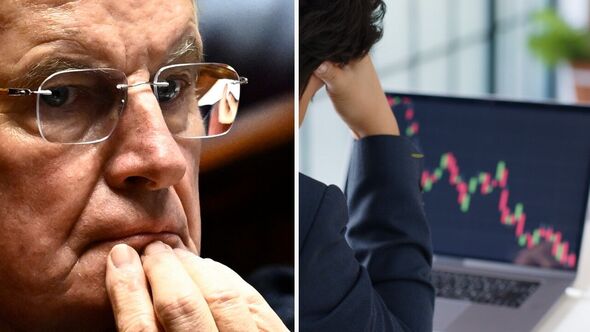The French economy is taking a battering as Brexit-hating Prime Minister Michel Barnier lost a vote of no-confidence after he used rare constitutional powers to force through a 2025 budget.
Mr Barnier, who gained a reputation in Britain as hardline European Union negotiator, was only appointed to the role of PM three months ago to lead a minority government under President Emmanuel Macron.
But his decision to steamroller through a £49 billion financial package of tax rises and cuts for the country infuriated both Marine Le Pen’s right-wing National Rally (RN) and a group of left-wing parties.
The two opposing sides came together in a rare show of unity to oust Mr Barnier, leaving Macron facing calls he should step down as well.
The political turmoil has now seeped into the French markets with analysts fearing the second-largest European Union economy could go into freefall.
According to GB News, spooked investors have punished French assets leading to a sell-off in French stocks and bonds. The euro also weakened as a result, reflecting investor concerns over the political stability of France, which is the eurozone’s second-largest economy.
French government bond yields rose sharply, with the premium France pays for long-term borrowing compared to Germany reaching its highest level since the Eurozone crisis in 2012.
In a worrying sign, the level of borrowing penalties were heading towards the crippling amounts which saw the Greek economy destroyed just over a decade ago.
Data provided by Professor Juan Ramón Rallo shows that France has the largest government in the world, with state spending accounting for roughly 57% of GDP.
In contrast, government spending in the US hovers around 36% of their GDP – its highest was 47% during 2020.
The public sector deficit in France is expected to hit 6% this year – double the EU’s target for member states of 3%.
High deficit means the cost of borrowing for the French government increases, meaning this takes up a larger slice of the overall budget for the nation.
The International Monetary Fund (IMF) recently acknowledged France’s dire predicament, stating that “structural reforms are necessary to ensure debt remains sustainable while maintaining growth potential”.
France’s debt surpassed 110% of GDP in 2024, a level considered risky for long-term fiscal sustainability.
